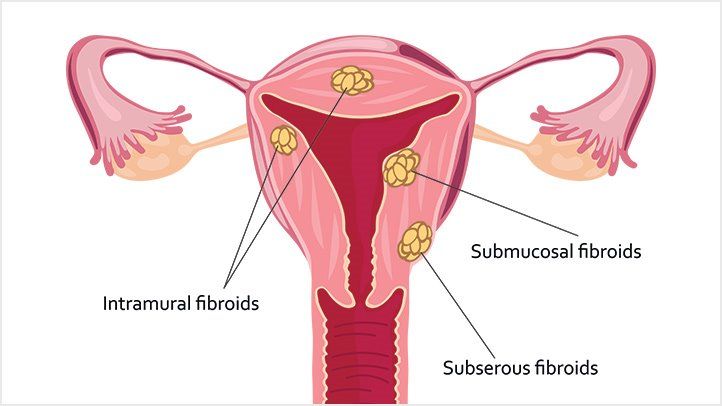What are fibroids?
Fibroids are also known by the following names:
leiomyomas
myomas
uterine myomas
fibromas
According to the National Institutes of Health (NIH), about up to 80 percent of women have them by the age of 50. However, most women don’t have any symptoms and may never know they have fibroids.
What are the symptoms of fibroids?
Your symptoms will depend on the number of tumors you have as well as their location and size. For instance, submucosal fibroids may cause heavy menstrual bleeding and trouble conceiving.
If your tumor is very small or you’re going through menopause, you may not have any symptoms. Fibroids may shrink during and after menopause. This is because women undergoing menopause are experiencing a drop in their levels of estrogen and progesterone, hormones that stimulate fibroid growth.
Symptoms of fibroids may include:
+Heavy bleeding between or during your periods that includes blood clots
+Pain in the pelvis or lower back
+Increased menstrual cramping
+Increased urination
+Pain during intercourse
+Menstruation that lasts longer than usual
+Pressure or fullness in your lower abdomen
+Swelling or enlargement of the abdomen



